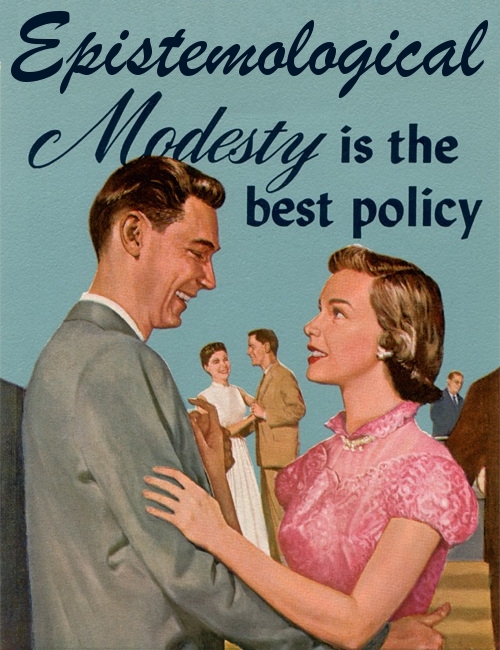I had a lovely weekend arguing with undergraduates and alumni at my debating group’s annual alumni banquet. And there was one argument in particular that seems relevant to the topic of this blog. Over dinner, one alum was talking about his upbringing in a Christian Science church and was summarizing their bizarre theology.
Essentially, Christian Scientists think all evil is delusion. God created a perfect world, and we must resist any illusion that suggest to us that the world is flawed. This is why Christian Scientists are anti-medicine; treating a disease means you’re buying into the false idea that disease exists.
We had some fun trying to figure out the logical consequences of this bizarre premise. Satan clearly had no place in Christian Science worldview, but how did one account for the Fall? Moreover, how do you account for the existence of the delusions themselves? They seem like an unambiguous evil that unambiguously exists (albeit subjectively).
Later on in the dinner, one of the other atheists at the table got into an argument with most of the rest of us about which standards of proof are appropriate for different claims. Someone pulled out the “How do you know your mother loves you?” line of questioning. It tends to go like this:
Q: Does your mother love you?
A: Yes.Q: How do you know?
A: She tells me so and her actions back it up.Q: How do you know she’s not tricking you?
Q: How do you know she has a genuine subjective feeling of love for you and isn’t acting according to societal norms or evolutionary imperatives?
Q: How do you know your mother exists?
Q: How do you know you’re not a brain in a vat?
At some point during this series, the atheist at the table gave up, bit the bullet, and declared himself agnostic with regard to his mother’s love and his own existence. Which was not the result any of us were going for.
As a last ditch effort to undo the damage we’d done, I pointed out, “Look, we thought the Christian Scientists were ridiculous for disbelieving in evil, but you’ve done them one better and have disavowed evil, good, and everything in between.” Before dessert was served, he was tentatively endorsing the idea that morality was objective, but still seemed a lot more comfortable in his position of radical doubt.
This was a prime example of valuing abstraction over the world. Once you’re in a fight, it’s easy to prefer the defensible, circumscribed schema to one that actually has content and bears some resemblance to the world in which we live. It’s easy to declare yourself a radical skeptic and claim you have nothing to defend while you skewer your opponent for every gap in their philosophy, but it’s cowardly and counterproductive. Atheists should declare themselves as something more than atheist.
In my ideal religious debate format, I’ve stuck epistemology right up front. Rip the band-aid off the wound and maybe you won’t have to play such a crippling defense for the entire rest of the fight.













